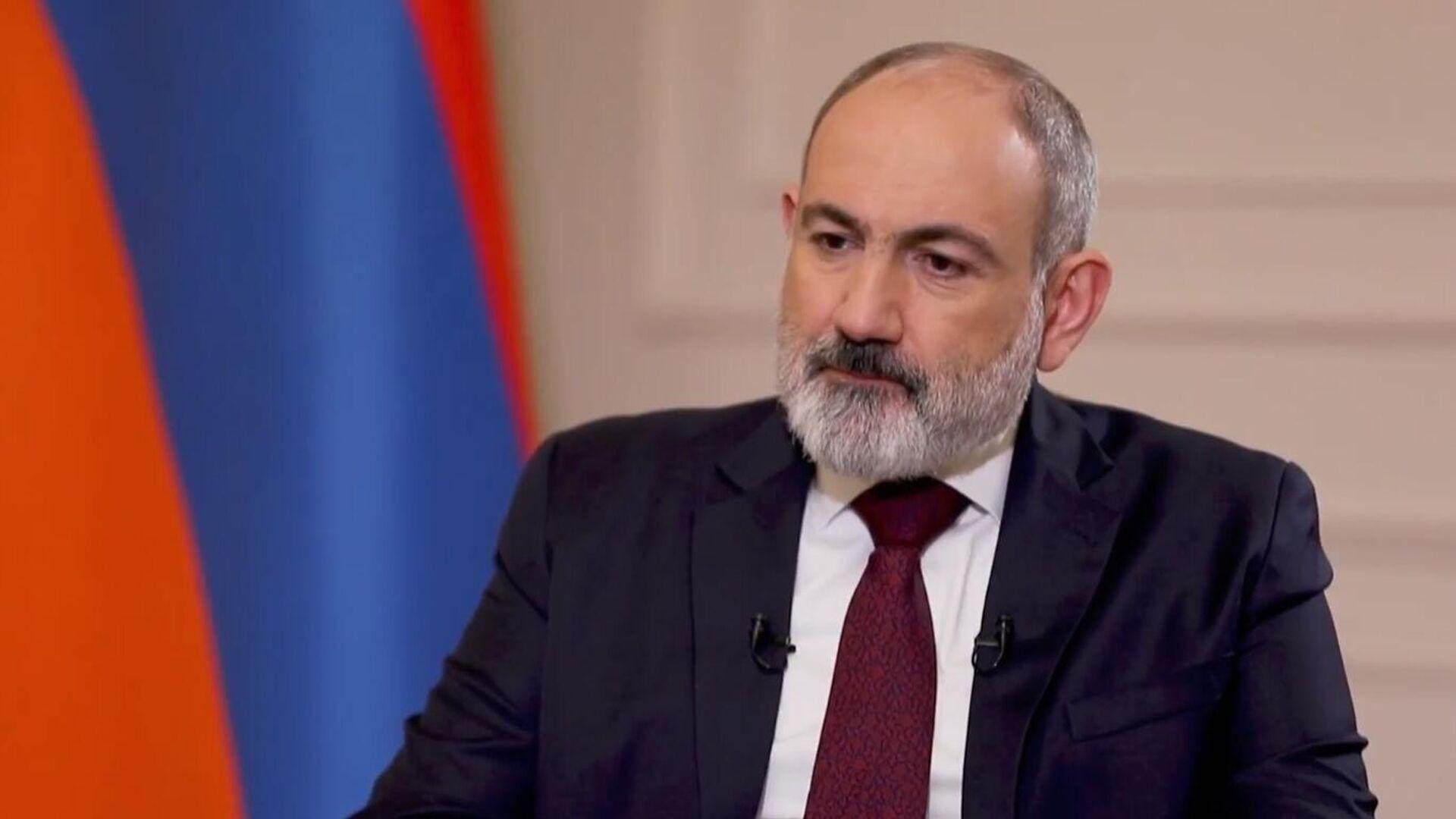Armenian PM’s arrogance, disrespect The Telegraph and Pashinyan’s foreign patrons
Armenian Prime Minister Nikol Pashinyan gave an interview to the UK’s The Telegraph news website. If Pashinyan’s previous interview with the Public Radio of Armenia could be considered quite constructive and even inspiring some hope for the evolution of his rhetorical method, then the conversation with the UK’s journalist, alas, was the usual model - casuistry and babbling.
Pashinyan once again used the microphone to blatantly slander Azerbaijan. He talked for a long time about the Almaty Declaration, and that Baku allegedly does not follow the agreements. He cited Azerbaijan’s non-participation in the summit in Granada and the reluctance of the Azerbaijani leader to visit Brussels as a striking example.
However, this slander was the clearest part of the conversation. When the journalist asked about Yerevan’s partners in creating a security system, Pashinyan confused the Englishman by mentioning the EU, the US, Russia, Iran and India. The journalist wondered about the West and Russia, which are in confrontation with each other.
“We are trying to resolve this issue with our partners within a joint agenda, being as transparent as possible,” Pashinyan answered.
Confrontation in one part of the world does not imply conflict in other part in our post-modern world.
While continuing to discuss the topic of security, Pashinyan answered one of the questions by expressing an undisguised challenge. The essence of this answer was that in the current situation, Armenia is not the most vulnerable country in the world. He even slightly advised the Europeans, and in particular the British, to think about their safety than to pester him with questions about Armenia’s security. This is a very inadequate statement given that Pashinyan has been begging the whole world to become a guarantor of Armenia’s security over the past years.
Armenia's ratification of the Rome Statute of the International Criminal Court (ICC) was another significant part of the conversation. The journalist directly asked Pashinyan whether Russian leader Vladimir Putin will be arrested if he arrives in Yerevan. In response, Pashinyan stressed that this was not his prerogative, lawyers should deal with this issue.
In general, the tone of Pashinyan’s conversation rather than his answers deserves more attention. Almost for the first time, Pashinyan was sharply communicating with foreign journalists. He interrupted the journalist several times, showing that he was not interested in the question, and that it was more important for him to complete the previous narrative. In general, Pashinyan had an impatient and even hostile attitude. The culmination was the moment when, before answering one of the questions, Pashinyan asked the journalist “excuse me, where are you from?” thus expressing disrespect both for the reputable news agency such as The Telegraph, and for the country it represents.

The Russian president also talks to foreign journalists frivolously. However, Putin is the leader of a world power. The same tone of the leader of a country begging for external assistance to support its statehood looks comical. Of course, the UK’s journalist remained faithful to the professional code and did not answer sharply. However, he was astonished by such a question. The journalist just cast a bewildered look at Pashinyan and answered that he arrived from the UK.
This insolence raises many questions. Why did Pashinyan start to feel so frivolous? Perhaps he understands that, contrary to his own statements, there is no threat to Armenia from Azerbaijan. It seems that Pashinyan is deliberately being insolent to the British. The UK is not among the Western countries willing to instruct Azerbaijan and is not voicing Armenian narratives about “ethnic cleansing” and other “suffering” inflicted on the “ancient people by nomadic barbarians”. Moreover, Pashinyan apparently decided to “revenge” for the “disgrace” by Stephen Sackur on the BBC HARDtalk show in August 2020.
By the way, there is an interesting detail. “Maybe you just phone Vladimir Putin and advise him not to come, because you cannot guarantee that he will not be arrested?” the journalist, seeking to ask about Pashinyan’s position on the ICC and Putin, stressed.
Pashinyan answered that he doesn’t think that Vladimir Vladimirovich needs his advice. However, Pashinyan said Vladimir Vladimirovich. Thus, he seemed to send a message to the British that they should not rejoice in the discord between Moscow and Yerevan. His relationship with the Russian leader is trusting.
This confidence reflects the Armenian prime minister’s sense of personal security. Has he really diverted the danger as a result of rumours regarding the various powers’ unrest within the party? Does he direct internal tension to external boundaries?
Bad news from the Azerbaijani-Armenian border area was disseminated on February 13. The Armenian armed forces committed a military provocation on the Zangilan section of the conditional border, as a result of which an Azerbaijani serviceman was wounded, as if foreign patrons have again given the command to Yerevan to escalate the situation.
Did Pashinyan believe the foreign patrons again? Maybe that’s why he behaves so self-confidently and arrogantly towards journalists. Let’s wait and see. However, Baku is aware of all the processes in Armenia and has prepared several responses, some of which, presumably, will be a surprise to Yerevan.








